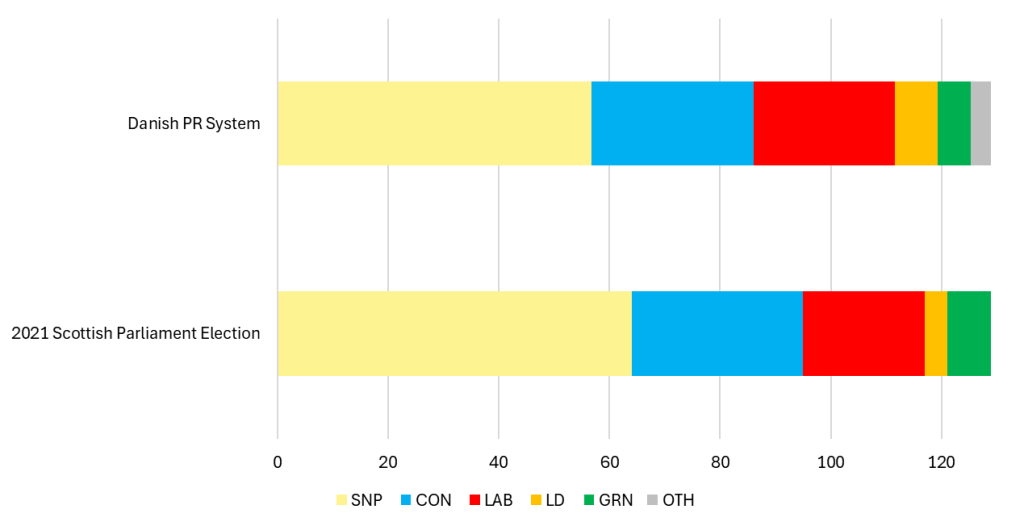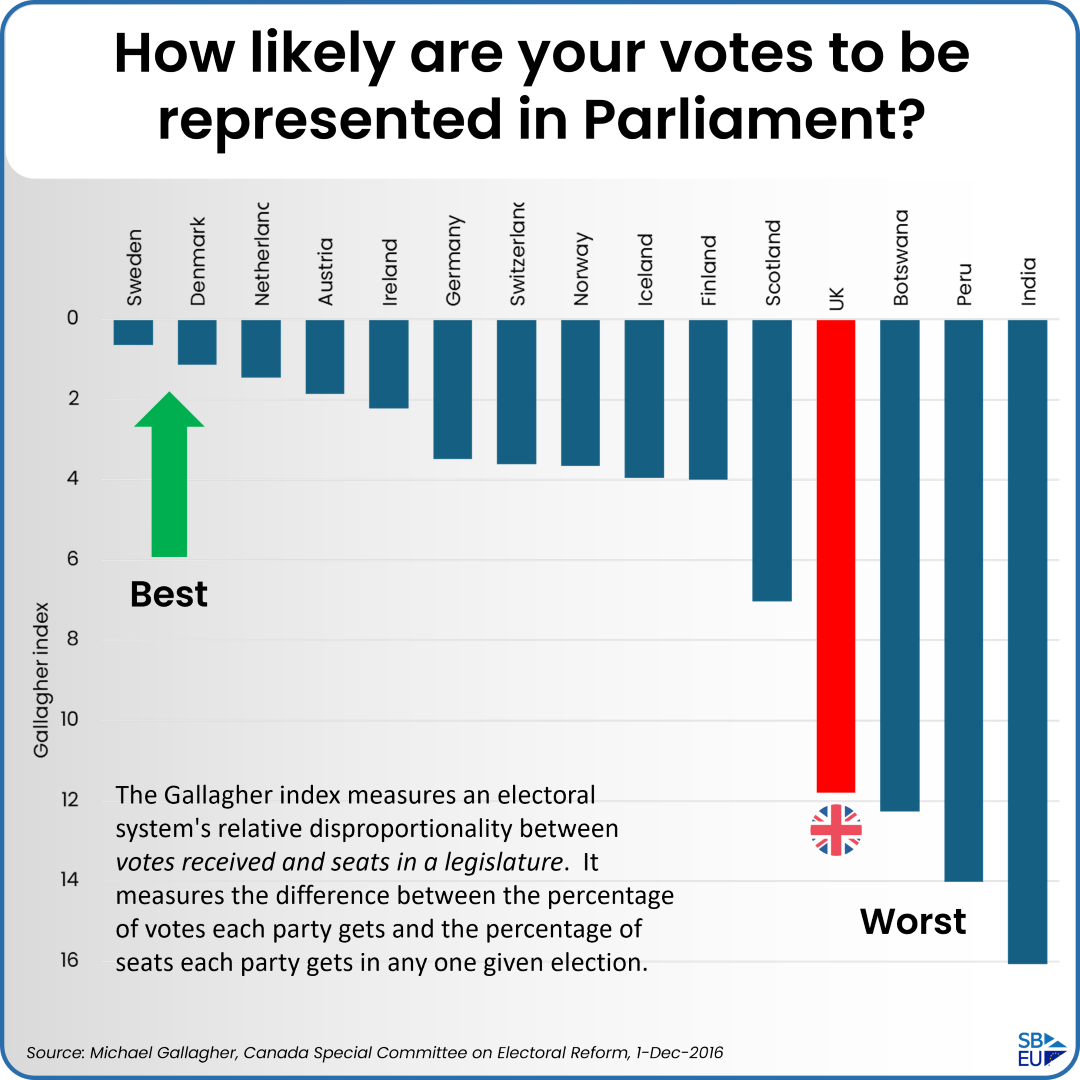If you vote, but your vote counts for nothing – what’s the point of voting? Can you even call that democracy? So how does the UK compare to other countries when it comes to counting your vote.
In the UK Westminster election system the “First Past The Post” (FPTP) process[i] is used. Voters cast a vote for a single candidate, and the candidate with the most votes wins the election. This means that only the voters who voted for the winning candidate have anyone representing them. All the other voters do not. Because of this obvious issue, most countries that used FPTP no longer do so. In fact not many countries continue to use it. Notable exceptions are the UK and USA.
Instead of FPTP a large majority of the world’s democracies have adopted a “Proportional Representation” (PR) process[ii] instead. PR seeks to represent votes proportionately within the elected body – crudely, the more votes that are cast for a party, the more people represent the voters for that party.
There are lots of variations of the PR system – for example Scotland’s Parliament uses PR in its system. It combines both FPTP (constituency seats) with PR (list seats). This hybrid approach was taken to try and limit the possibility that nationalist parties could get a majority (it failed). In fact if you apply one of the most popular full PR systems – that from Denmark[iii] – to the last Scottish Parliament elections, the unionist parties would have done better than they did!

Comparing systems
Mathew Gallagher developed an index for comparing electoral systems. First presented to the Canadian Government in 2011, the Gallagher Index[iv] measures an electoral system’s relative disproportionality between votes received and seats in a legislature. It measures the difference between the percentage of votes each party gets and the percentage of seats each party gets in any one given election.
Thus a lower Gallagher Index means the system has a closer match between votes and seats in the Parliament – a more democratic system, some might argue. Conversely a high index means less of a match between votes and seats, leading to an increasing proportion of votes resulting in no representation.
So how does the UK perform? It will come as no surprise to discover that it is one of the least representative in the World at 11.8. This compares with the best like Sweden at 0.64 and Denmark at 1.13.
Who would choose to use a democratic system like the UK’s? Votes often result in no representation in Parliament, a House of Lords appointed by parties for life – with religious leaders and hereditary seats!
Sources
[i] https://en.wikipedia.org/wiki/First-past-the-post_voting
[ii] https://en.wikipedia.org/wiki/Proportional_representation
[iii] https://elections.im.dk/media/15737/parliamentary-system-dk.pdf
[iv] https://en.wikipedia.org/wiki/Gallagher_index

Leave a Reply